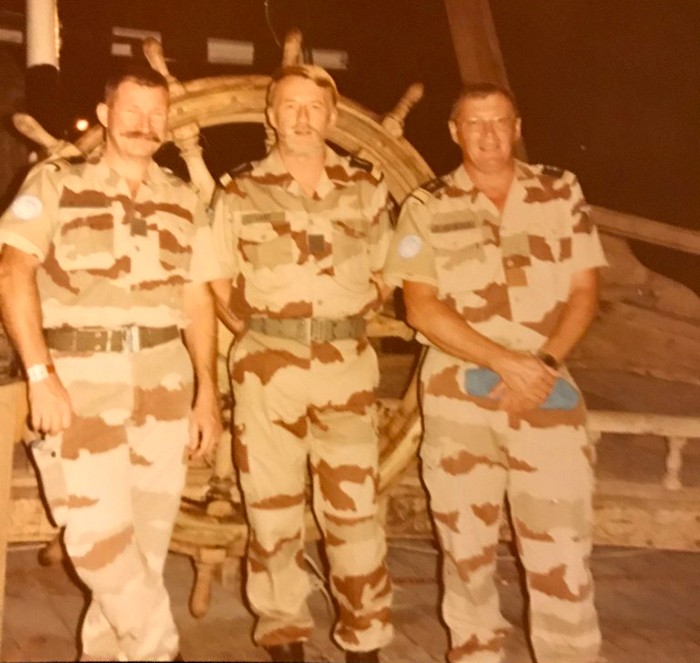Christian de COCKBORNE
Please tell us a little bit about your career.
I am Christian de COCKBORNE. I joined the French army in 1979 and became an infantry officer. I participated in the 2nd Gulf War within the 2e REI (Foreign Legion). I had previously served a three-year mission to Jerusalem and Syria.
Why were you appointed for this United Nations mission?
I returned from Operation Daguet, the French operations during the 1991 Gulf War, in March 1991 after six months in the desert. I was pondering on what to do next when I learnt that the French army staff needed 12 officers to deploy on an United Nations mission that had just been decided by the UN Security Council.
The United Nations Iraq-Kuwait Observer Mission (UNIKOM) involved monitoring the land border and the Khor Abdallah sea-crossing between Kuwait and Iraq. Since I had experience in both the countries involved, and as I was already familiar with the United Nations, I volunteered… and I was selected. I did not even have to unpack my bags; I left straight for Kuwait.
How was your arrival and settling in Kuwait?
I left Orleans Air Base, the French Air and Space force base near the city of Orleans in France, on 10 April, headed for Riyadh. We were 12 future French observers. The next day we took a helicopter to reach Kuwait City. The sky was dark with the fumes from the burning oil wells. We were placed in a hotel, which was still in good condition despite the war.
We were received by Colonel Le Man, who was the leader of the French detachment,which was actually the remainder of Operation Daguet. He briefed us on the local tactical situation. Then we made contact with the UNIKOM staff who were just moving into the Moevenpick Hotel. The 12 French were assigned to different tasks. For my part, I first took care of the reception and installation of the newly appointed observers, coming from many different countries.
In May when UNIKOM became fully operational and its headquarters moved to Umm Qasr, I was deployed to the field. My mission was logistics. I had to supply all observation posts in the area with fuel, water, food rations and other equipment. I was assigned a 4X4 vehicle which I personally repainted in white (to be identified as a United Nations vehicle). Then, in August, I returned to Kuwait City. I reported to a Chinese colonel, to ensure liaison missions with the Kuwaiti authorities. We were under the command of General Greindl (Austria).
What do you remember most from this mission?
It was a very interesting experience to see a country coming back to life after a devastating war: demining, cleaning, reconstruction, the return of families to their homes, etc. I was impressed with how quickly life returned to its normal course after the end of hostilities. Also, I really enjoyed working with soldiers from all over the world to ensure the success of the ceasefire monitoring mission. We were traveling in both countries crossing a border that was no longer even demarcated. To all of us, UN Peacekeepers and UN Observers, embody the international community;s desire for peace in the world.
Read also:

